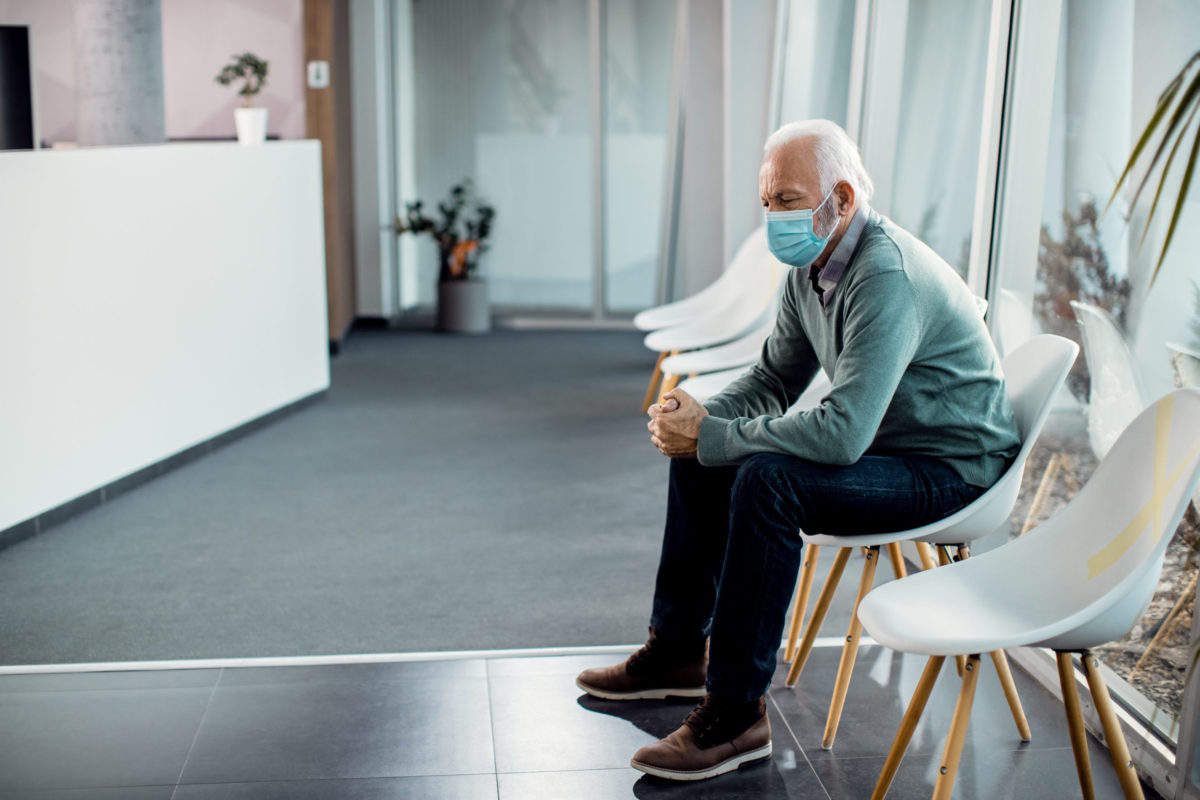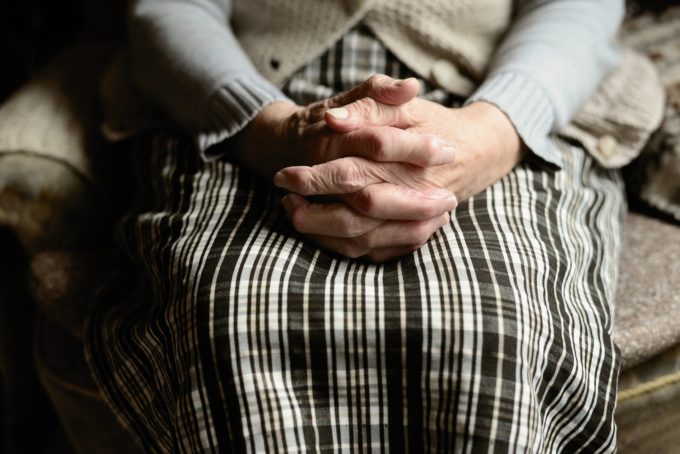Category: Patients

Mesothelioma Patient on Importance of Staying Positive During Treatment
Once a person is diagnosed with malignant mesothelioma and decides on a treatment plan, the anticipation for treatment to begin – and the reality of when it does begin – can be a challenging time.
Recently while talking with a patient, he offered his perspective on the difference between day 1 and day 2 of beginning treatment. For him, when treatment was going to be initiated, he found his mind in a unique spot. As he took in the new faces, new information, and new surroundings, new hope was born. The anticipation of the day was finally reality, and his body and mind were going down separate paths. This experience – whether it be chemotherapy, radiation, immunotherapy or surgery – is new, a road never traveled. Although education was provided prior to his intervention it is overwhelming to say the least. This first day is like no other day of your journey.
For this patient, the second time he had treatment it was no longer a new experience. For him, the reality of what he was going through was met with dread and fear. The anticipation of treatment and hope was met with growing uneasiness. Familiar faces are not new and side effects are expected and can produce anxiety. How does one deal with these days ahead, days that once provided hope and now are filled with anxiety and fear?
Wrapping your mind around the positive and trying to focus on the ultimate goal is key. These experiences are trying times and everyone masters these situations differently. Many choose to surround themselves with their most positive support team, others surround themselves with thoughts of a brighter future. Whatever way you choose is yours, and entirely up to you.
Prior to day 2 of your journey, try to focus on the part of treatment that you found positive. Experiences like treating mesothelioma bring many new possibilities. A relationship of any kind may be positive, or a certain person may have provided a warm smile which may be all you need at that very moment.
Perhaps writing in a journal as you travel this new path will bring peace to help when you reflect back on some of your symptoms and how they are improving. When people are facing their biggest adversities, sometimes there are strong positive ideas, relationships, or experiences that may change your perspective.
Receiving a diagnosis of mesothelioma is not like any other challenges that you may have faced. As we continue to see our waiting rooms filled with new faces, we are aware of the struggles that you are facing and are here for you. If there is something that you need or have questions about, please ask. The Mesothelioma Centers of Excellence are striving for a brighter future for all who have been affected by this disease one patient at a time.

Mesothelioma Patients Can Safely Get Treatment Through Telehealth and Video
The COVID-19 virus has disrupted all of our lives and routines. Things that we always did and places we always went are no longer available. The pandemic has forced us to all look at things we routinely do and challenged us to do them differently.
Like in business, in medicine sometimes small disruptions can lead to larger innovative changes. In the treatment of malignant mesothelioma, disruptors have led the way. Over the years we have seen doctors challenging the previously held belief that there was no treatment for malignant mesothelioma time and time again. The treatment options and longer quality of life that many mesothelioma patients are now able to be part of was not an option 20 years ago.
Before the pandemic, having a doctor’s visit for the vast majority of people involved going to the office or clinic at an appointed time, waiting, and meeting with the doctor. Patients diagnosed with malignant mesothelioma had the option of travelling to a Mesothelioma Center of Excellence to consult with experts in the field. Since the pandemic, with social isolation and doctors offices and clinics closed to prevent the spread of the virus, there has been a surge of tele-health visits.
The U.S. Department of Health and Human Services’ Office for the Advancement of Telehealth promotes the use of telehealth technology for health care. Their definition of tele-health is “the use of electronic information and telecommunications technologies to support and promote long-distance clinical health care, patient and professional health-related education, public health and health administration. Technologies include videoconferencing, the internet, store-and-forward imaging, streaming media, and terrestrial and wireless communications.”
In 2018, tele-health was 0.1 percent of all medical claims filed. Since the pandemic those numbers are exploding.
Tele-health has made possible consults and reviewing of scans and meetings with mesothelioma experts. As things are starting to open back up, so are the patients coming back to the mesothelioma centers for in-person consultations.
Like any new technology telehealth has pros and cons. Some people have commented that you have the MD’s full attention without the distractions of an office and other responsibilities. Other people have missed the personal interaction and meeting in person with their doctor.
The coronavirus has brought to the forefront a technology that can benefit a lot of people as they search for the best advanced personalized care for themselves or loved ones with mesothelioma. Tele-health can help malignant mesothelioma patients connect with a mesothelioma center without having to travel. It will take awhile to assess how tele-health will be accessed and have the best results for patients. For patients, their satisfaction with tele-health will need to be studied and evaluated to continue to efficiently access tele-health with the best results.
If you or a family member is diagnosed with malignant mesothelioma reach out, either electronically or in person for the best possible care. Our experts can help connect you with both the medical and legal resources you need to move forward.

Coronavirus & Mesothelioma Treatment: One Patient’s Story
The COVID-19 pandemic upended our usual routine and impacted all of our lives. For people that needed medical treatment it became a different experience. Having treatment for anything but coronavirus related illness became the exception. No visitors were allowed in the hospitals for patients no matter what their diagnosis. Many people put off necessary treatment for a later time. Facing cancer at any time is frightening. Facing treatment for a rare cancer such as malignant mesothelioma, alone without your loved ones, can add another layer of stress.
Reading and hearing about people’s experiences you think would prepare you for seeing it in person. Whether it is physical or psychological the suffering is real.
Our patient was a middle aged man who has malignant pleural mesothelioma. His presenting symptom was a cough that would not go away. He was worked up for it and he was a surgical candidate which he opted to have. The time between his symptoms and being diagnosed was a few months. Things were on track for surgery, and he lived locally near his Mesothelioma Center. Things were lining up for him in a timely fashion, but then the pandemic came and things changed.
It is known that patients facing a cancer diagnosis do better with family support. Since most cancer treatment is on an outpatient basis that is where the majority of support happens. However, the period in the hospital is unfamiliar and frightening – it can be terrifying. Our patient was dropped at the hospital and stayed in for greater than 30 days. He had a support system, but no visitors were allowed into the hospital. For his inpatient stay he remembers being confused, afraid, and convinced that he was dying. During this month-long stay he praised the staff of the hospital, but explained that not to see your loved ones when you are confused was too much. Frequent phone calls were no substitute for seeing someone who is supporting you through this stressful time. His hospital course was complicated and since discharge he has been experiencing many different emotions. Usually someone in control of his emotions, he finds himself crying frequently and unexpectedly. As he is processing this trauma he and his loved ones are realizing what an important part that support plays in a person’s physical and psychological recovery.
Treatment for mesothelioma is difficult under the best of circumstances but during the pandemic it became harder. As people start to come for specialized treatment to a Mesothelioma Center of Excellence please know that their team is very tuned in to how vital support from their loved ones is during this time.

How Mesothelioma Patients Can Take Care of Themselves During Coronavirus
As we continue social distancing, washing our hands, and staying in our homes, a new normal is settling in. For people that are dealing with malignant mesothelioma as well as the COVID- 19 virus, day to day living can be extremely stressful during these uncharted times. What can people who have malignant mesothelioma do day to day?
- Back to basics like eating right, high protein diet.
- Walking daily outside if able.
- Limiting your alcohol intake.
- Taking your medications as prescribed.
- Keeping your spirits up.
- Having a routine that includes adequate sleep.
- Limit your time watching the news and social media.
At times, fear creeps in for all of us. We fear what is going on around us, what is coming, when it will all end and when our “normal” lives come back. For those dealing with malignant mesothelioma either as a new diagnosis or have been living with the diagnosis, this is a particularly challenging time. An article in Psychology Today by Laura Markham PHD, “Coping with Fear in the Face of a Pandemic,” has suggestions for when worry and fear take hold of us.
- Use your pause button – stop and take several deep breaths to calm your body down.
- Notice what you are worried about – if it is something in the future, it might not happen and you cannot control it anyway.
- Calm your mind by taking charge of your thoughts – you can handle it.
- Empower yourself and your family – cultivate positivity.
- Consciously choose love instead of fear.
If you are under treatment for malignant mesothelioma there could be some specific questions requiring answers. Although the focus is on taking care of coronavirus patients in most hospitals and Centers of Excellence, the mesothelioma team is still available.
Call your team. If you don’t have a dedicated mesothelioma team, reach out – the experts are available. Remember you are not alone even when it feels that way.
Balancing Mesothelioma with the Coronavirus Pandemic
 When someone is diagnosed with malignant mesothelioma, the battle is both mental and physical. The symptoms are numerous and some more frightening than others. Mentally it can have an outsized effect on one’s peace of mind, affecting your physical wellbeing as well as your emotional wellbeing.
When someone is diagnosed with malignant mesothelioma, the battle is both mental and physical. The symptoms are numerous and some more frightening than others. Mentally it can have an outsized effect on one’s peace of mind, affecting your physical wellbeing as well as your emotional wellbeing.
So how does a mesothelioma patient keep mind and body in sync during a strenuous time like the coronavirus pandemic?
First, look around at yourself and jot down your physical symptoms. Put factual numbers to paper. A few strategies you might consider include:
- Monitor daily weight.
- Monitor calorie intake if you can, or just list what you eat.
- If you have an O2 sat monitor use that and record the findings.
- If you don’t have an O2 sat monitor monitor, record the distance you can walk each day.
Now that really is the easier part. Mental wellbeing can be a challenge. How do you keep your head in check and not get carried away to dark thoughts and fear? If you are having a hard time being calm, there is a fair amount of advice available. Here are some different approaches:
- Close your eyes, take a deep breath, and exhale slowly.
- Say out loud three things you are grateful for today.
- Connect with others. Talk with people you trust about your concerns and how you are feeling.
- Take a break from news, including social media.
If these ideas aren’t working, contact your primary care provider and they will try to help with your physical or mental challenges at this time. Reach out to your mesothelioma team. Remember that mesothelioma patients are high risk when it comes to coronavirus and the COVID-19 virus’ related respiratory symptoms.
You are not alone. These times are uncharted territory for all of us. We can get through it with help from one another.
Free Mesothelioma Patient & Treatment Guide
We’d like to offer you our in-depth guide, “A Patient’s Guide to Mesothelioma,” absolutely free of charge.
It contains a wealth of information and resources to help you better understand the condition, choose (and afford) appropriate treatment, and exercise your legal right to compensation.
Download Now